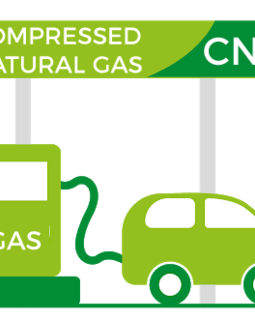In the modern era, cars are synonymous with convenience, freedom, and mobility. However, as we celebrate the benefits of automotive technology, it's crucial to acknowledge its profound impact on the environment. From carbon emissions to resource depletion, cars significantly contribute to environmental degradation. In this article, we'll delve into the environmental repercussions of cars and explore strategies for fostering sustainable mobility.
1. Carbon Emissions:
Cars are major emitters of greenhouse gases, particularly carbon dioxide (CO2), which is a primary driver of climate change. Combustion engines burn fossil fuels, releasing CO2 into the atmosphere.
Additionally, cars emit other pollutants such as nitrogen oxides (NOx) and particulate matter (PM), contributing to air pollution and respiratory illnesses. Addressing carbon emissions requires transitioning to cleaner fuels, promoting electric vehicles, and improving engine efficiency to minimize environmental impact.
2. Resource Depletion:
The production of cars relies on the extraction of raw materials, leading to resource depletion and habitat destruction. Mining for metals and minerals disrupts ecosystems, alters landscapes, and threatens biodiversity.
Moreover, the disposal of end-of-life vehicles poses environmental challenges, as it often involves landfilling or incineration, leading to soil and water contamination. Adopting sustainable materials, promoting recycling initiatives, and extending the lifespan of vehicles through refurbishment can mitigate resource depletion and habitat destruction.
3. Urbanization And Congestion:
The proliferation of cars contributes to urbanization and traffic congestion, exacerbating environmental issues such as air pollution and greenhouse gas emissions. Urban areas bear the brunt of congestion-related problems, including noise pollution, reduced air quality, and increased energy consumption.
To alleviate these issues, cities must prioritize integrated transportation solutions, such as public transit, cycling infrastructure, and urban planning policies that promote walkable environments. By promoting alternative modes of transportation, cities can reduce reliance on cars and mitigate environmental impacts associated with urbanization and congestion.
4. Energy Consumption:
Cars consume vast amounts of energy, primarily derived from fossil fuels, such as gasoline and diesel. The extraction, refining, and combustion of these fuels contribute to carbon emissions and environmental degradation.
Transitioning to renewable energy sources, such as solar, wind, and hydroelectric power, can reduce the environmental footprint of cars and lessen dependence on finite fossil fuels. Additionally, improving vehicle efficiency through advancements in engine technology, aerodynamics, and lightweight materials can enhance energy efficiency and reduce fuel consumption.
In conclusion, cars have a significant impact on the environment, but there are opportunities for mitigating these effects through collective action and innovation. By transitioning to cleaner fuels, promoting alternative transportation modes, and embracing sustainable mobility solutions, we can pave the way towards a greener and more sustainable future.
It's imperative for the automotive industry, policymakers, and individuals alike to prioritize environmental stewardship and work towards a transportation system that meets our mobility needs while preserving the planet for generations to come.





